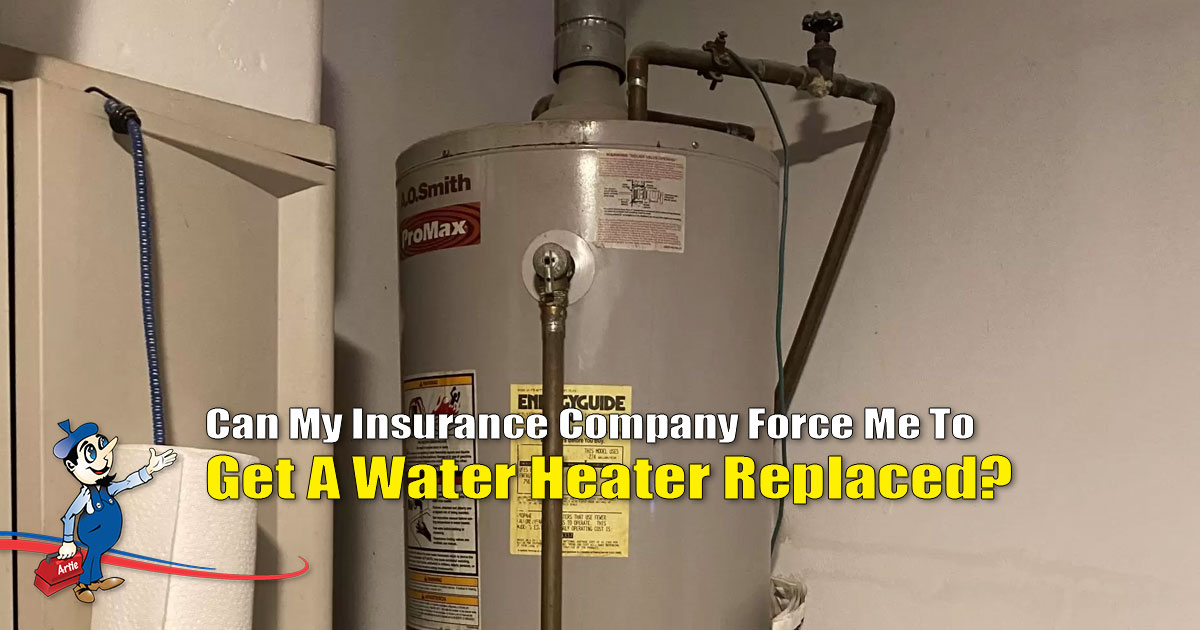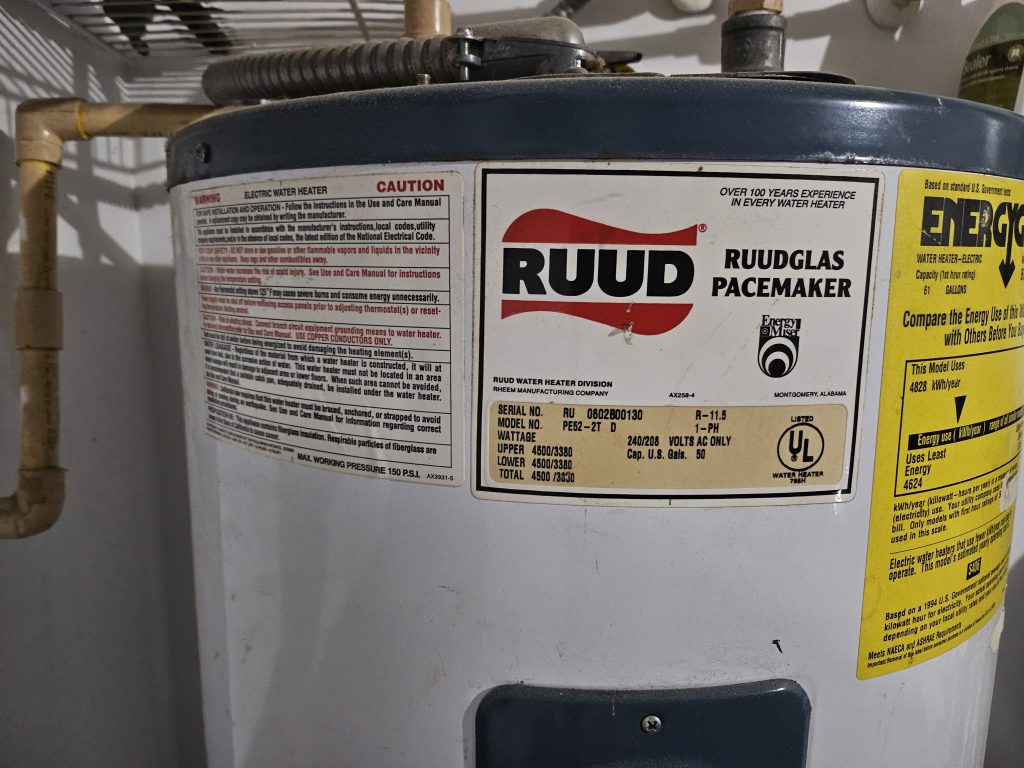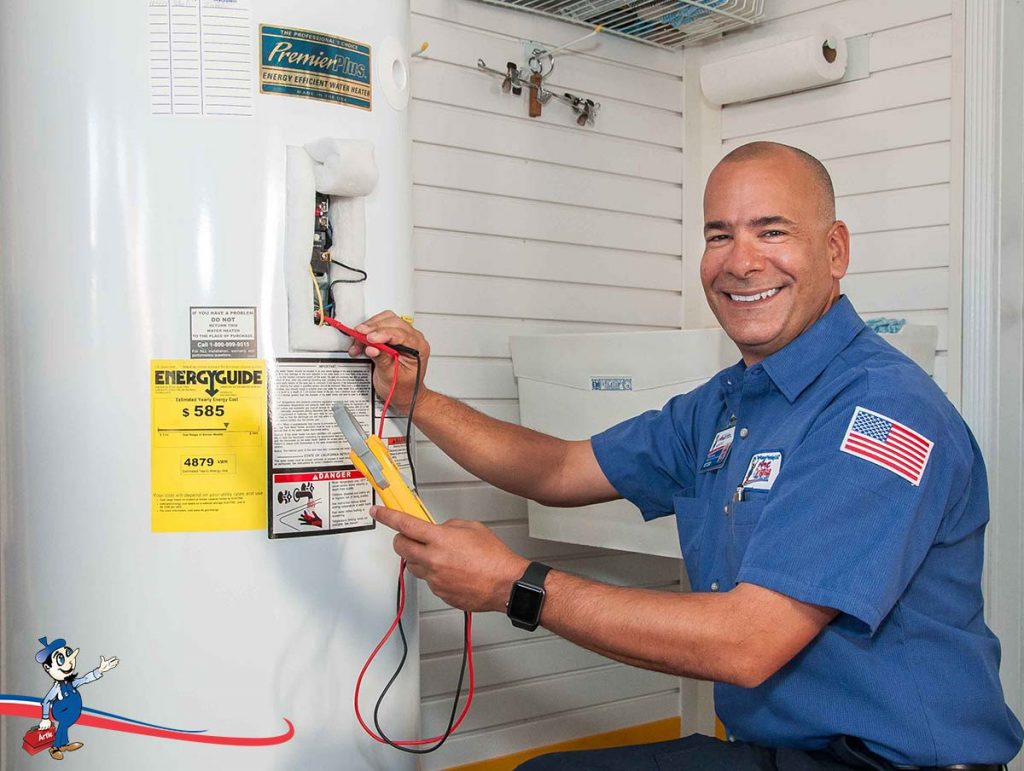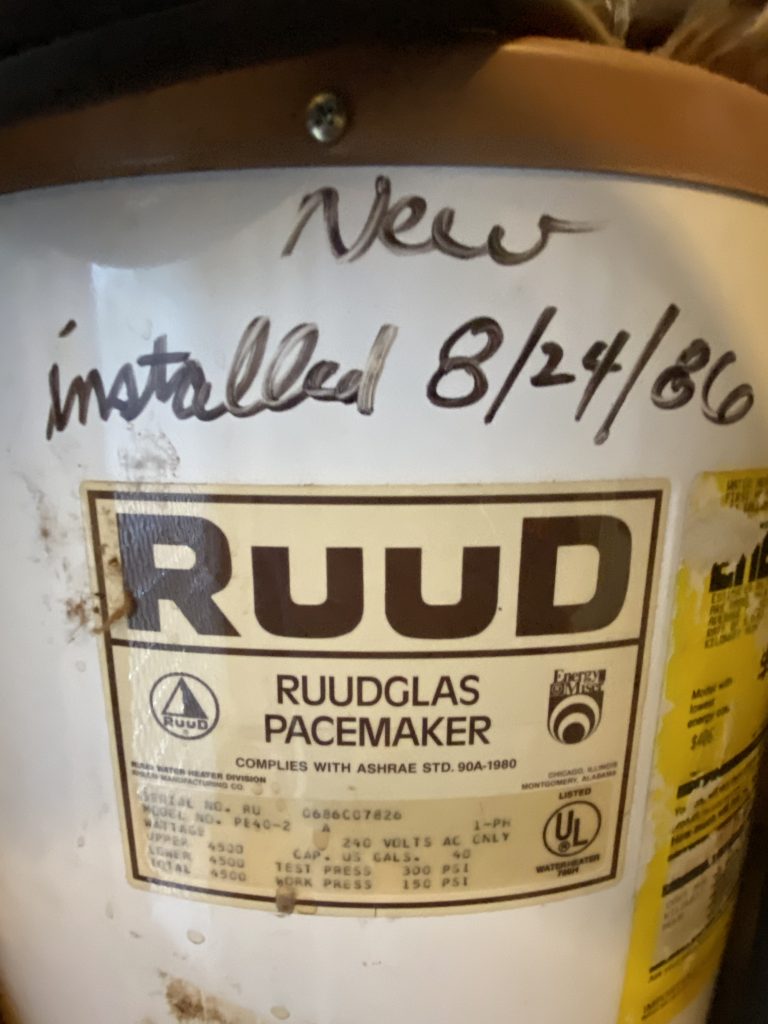Can My Insurance Company Force Me To Get A Water Heater Replaced?

A water heater is one of the most essential appliances in your home’s daily functioning. It ensures a constant supply of hot water, providing comfort, convenience, and well-being. But like any other appliance, it will deteriorate over time. As your water heater ages, you may notice discolored water, unusual noises, inadequate heating, or even a leak, in such cases, you will need a water heater replacement.
However, as you renew or enroll in homeowner’s insurance, your insurer may need to inspect your home to assess the risk involved. They’ll inquire about various systems in your home such as the hot water system. Their primary concern is avoiding the potential claims of water damage or fire that may arise from an old or faulty water heater.
So, can the insurance company force you to replace your water heater? Here’s what you need to know.

How Do Water Heaters Affect Home Insurance?
Before the insurance company can offer home insurance coverage, they will inspect your home including the appliances. The insurance company will also examine the status of your water heater. Malfunctioning water heaters are more prone to failure, and insurance companies may charge higher premiums or impose coverage limitations for homes with older systems. Insurance companies may require inspection and regular maintenance of water heaters to mitigate the risk of malfunctions and potential claims.
Additionally, the type of water heater in a home can impact insurance premiums. Traditional tank-style water heaters are more common but can leak or burst easily compared to tankless water heaters, which have a longer lifespan. If you install a tankless water heater, insurance companies will view your home favorably and may lower premiums.
The location of the water heater within the home can also affect insurance coverage. Water heaters in areas prone to flooding may increase the risk of water damage and consequently impact insurance rates. Insurers may require additional flood insurance or impose coverage restrictions for homes in flood-prone regions.
Furthermore, the installation of safety features such as drip pans, automatic shut-off valves, or straps can help mitigate the risk of water damage and may qualify homeowners for insurance discounts or more favorable coverage terms.

What Happens If the Water Heater Bursts?
Home insurance policies often contain clauses about what they will pay for if a water heater bursts. This coverage extends beyond merely the replacement cost of the water tank itself. A burst or leak can result in significant water damage to the home’s structure, furnishings, and personal belongings. Moreover, the ensuing cleanup and restoration efforts can incur hefty costs, particularly if mold remediation or structural repairs are necessary.
First, there’s the immediate cost of addressing the leak itself, which includes repairing or replacing damaged pipes, valves, or other infrastructure. This can involve hiring skilled technicians or plumbers, purchasing materials, and possibly shutting down operations temporarily to facilitate repairs.
Once the leak is contained, there’s the expense of cleanup and restoration. Water damage can be extensive, affecting walls, flooring, furniture, equipment, and other assets. Depending on the severity of the leak and the affected area, this may involve drying out the space, removing and replacing damaged materials, and mitigating mold or mildew growth.
Additionally, if the leak or burst has caused structural damage, such as weakening foundations or compromising the integrity of the building, reconstruction may be necessary. This can be a lengthy and costly process involving contractors, architects, engineers, permits, and materials. Beyond the immediate financial costs, there are also potential indirect expenses to consider, such as lost productivity, business interruption, legal liabilities, and damage to reputation or customer trust.
Can the Insurer Refuse Coverage for a Hot Water Heater?
A water heater can significantly increase the chances of an insurance claim and the cost of the resulting repairs. That’s why many insurance companies are reluctant to cover homes with certain water heaters. In the following circumstances, your insurance company might insist on a water heater replacement:
- Age of the Water Heater: Insurance companies may reduce coverage for water heaters beyond a certain age, typically around 12-20 years. Older water heaters are more prone to leaks, corrosion, and other issues, increasing the risk of damage.
- Lack of Maintenance: If the policyholder has neglected the water heater maintenance, repairs, or inspections, the insurance company may reduce coverage. Proper maintenance is crucial for preventing malfunctions and leaks.
- Installation Issues: Insurance companies may reduce coverage if the water heater is not installed according to building codes or manufacturer guidelines. Improper installation increases the risk of leaks, electrical issues, and other problems.
- Previous Claims: If the policyholder has a history of filing multiple claims related to water heater damage, insurance companies may reduce coverage or increase premiums to offset the perceived higher risk.
Regular maintenance and prompt repairs can help mitigate risks and maintain coverage levels. If your appliance is old and becoming less efficient, consider a water heater replacement as frequent repairs may become more expensive in the long run.

What Are the Signs of an Aging Water Heater?
As a water heater ages, it gradually loses its efficiency in heating water promptly and to the desired temperature. This decline is due to the accumulation of silt and debris inside the tank over time. These sediments take up space within the tank and reduce the volume available for hot water storage. The result is that the hot water supply is insufficient to meet your needs, leading to inconvenience during activities like showering, bathing, laundry, or dishwashing.
In addition to performance issues, you can determine the approximate age of your water heater by checking the following:
- Manufacturer’s Label: Look for a label or sticker on the water heater itself. It’s usually on the side of the tank or near the top. The label may contain various details, such as the model number, serial number, and manufacturing date.
- Serial Number: The serial number can help determine the age of the water heater. Sometimes, the date is part of the serial number itself, or the manufacturer may have provided a specific format to indicate the date.
- Manufacturing Date: If the manufacturing date is not part of the serial number, there may be a separate section on the label explicitly stating the month and year of the water heater’s manufacture.
- Installation Date: The installation date might appear on a separate sticker that the installer or service technician attached when they installed the water heater. This can provide an accurate timeline of how long the unit has been in use.
Once you find this information, you can use it to gauge the age of your water heater.
What Are the Alternatives to Replacing a Water Heater?
If you don’t want to replace your water heater, you have several options. One is getting a home warranty, a service contract that covers the repair or replacement of all appliances in your home, including the water heater. Home warranties usually have annual fees and deductibles, but they can provide peace of mind knowing that your appliances are protected.
Another option is an appliance warranty, which explicitly covers the repair or replacement of your water heater. You can purchase these warranties directly from the manufacturer or retailer, which may offer more comprehensive coverage for specific appliances. You can also insure your water heater at replacement cost. This ensures that you can replace damaged appliances with new ones of similar quality rather than receiving only depreciated value.
Find the Right Professional for Water Heater Replacement
A properly functioning water heater is crucial not only for your daily living but also for your home insurance policy. A new water heater can significantly reduce your insurance premiums due to the lower risk involved. If your water heater is old or faulty, find a professional plumber to replace it.
If you’re in South Florida, Art Plumbing, Air Conditioning & Electric, can offer you professional water heater repair and replacement services. We’re licensed and trusted plumbing, AC, and electrical experts since 1983. Contact us today for water heater maintenance, repair, replacement, and installation.
Schedule Service







